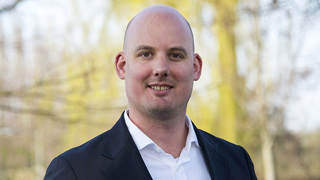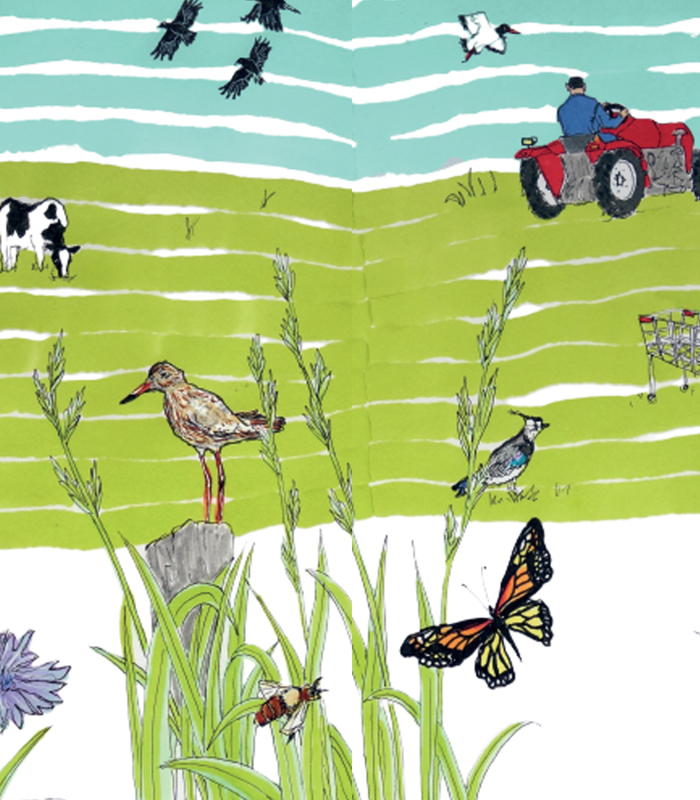
Daan Groot MSc
Professor Business Models for Regenerative Agriculture
- D.Groot@has.nl
- D.Groot@has.nl

The Business Models for Regenerative Agriculture professorship focuses on how new opportunities can arise for nature-inclusive business operators in an alternative interaction between farmers, society and government. It is also looking at how a business model with sufficient earning potential can be created for farmers who want to work on nature-inclusive agriculture.
The aim of the Business Models for Regenerative Agriculture professorship is investigating how opportunities can arise for nature-inclusive agriculture for a larger group of farmers. The research group is looking both at the business mindset of individual farmers, and examining the area and the system in which farmers are active.
Nature-inclusive agriculture is a form of agriculture that operates within the boundaries of the natural system in a way that benefits biodiversity, the soil, the climate and the landscape. This form of agriculture can also provide an answer to many of the social issues currently facing the agricultural sector, such as water quality, climate adaptation, nitrogen emissions, and loss of biodiversity.
Revenue model
However, nature-inclusive agriculture can only be scaled up if it goes hand in hand with a viable model for generating revenue; after all, you can't go green if you’re in the red. The first term of the research group (under the title Innovative Entrepreneurship in Rural Areas) revealed the limited possibilities for individual farmers to achieve a viable revenue model, and those that do exist rely heavily on personal motivation, a spirit for doing business and farm-specific circumstances.
Feasible and applicable
The Business Models for Regenerative Agriculture Research group is investigating how opportunities can arise for nature-inclusive agriculture for a larger group of farmers. The research group is looking both at the business mindset of individual farmers, and examining the area and the system in which farmers are active. The perspective of the farmers is the priority in the research group: this kind of farming must be feasible and applicable.
Reports, summaries and articles
View all reports, summaries and articles of projects from the professorship in Greeni
